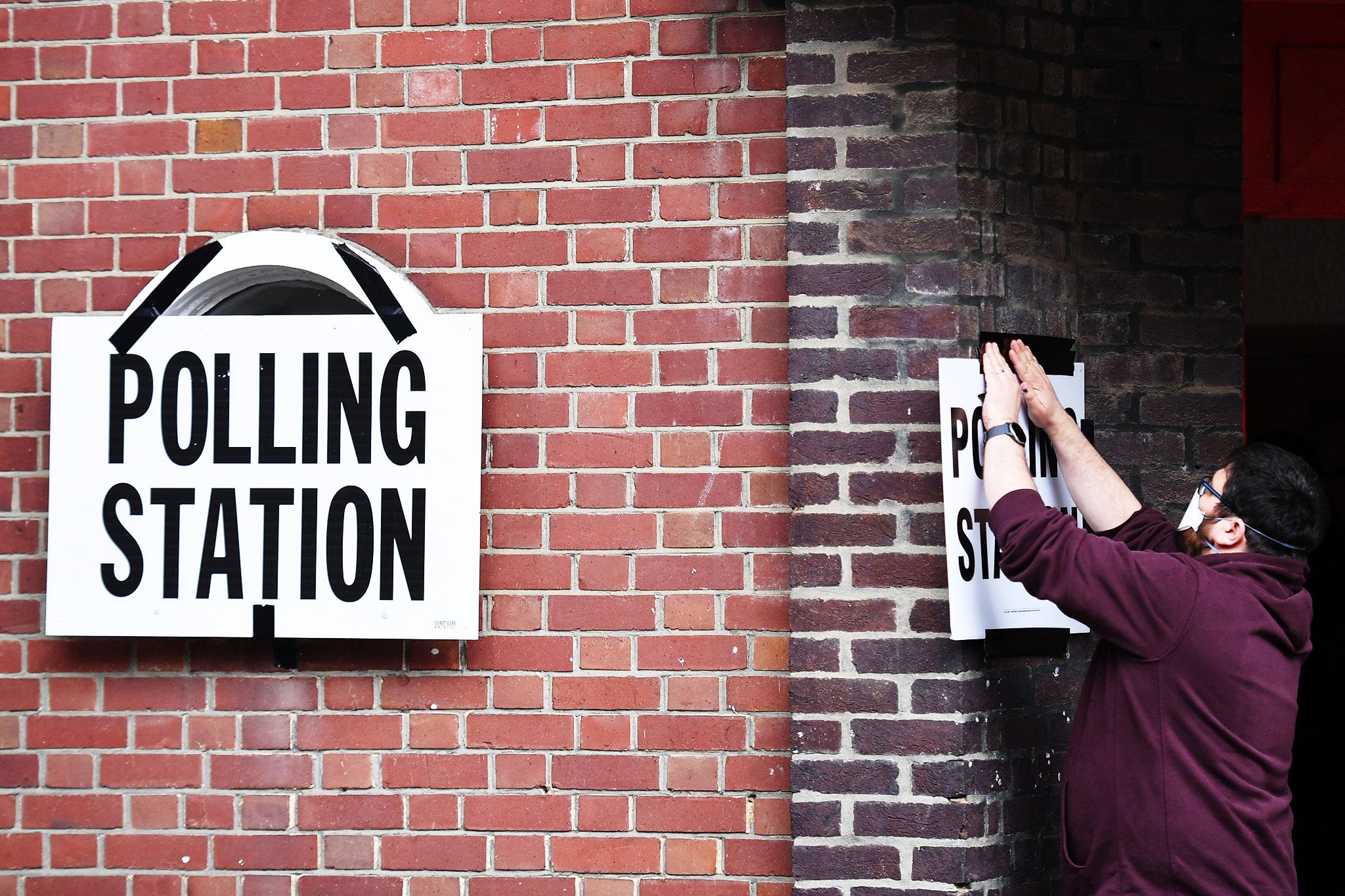The Elections Bill is a dangerous assault on our democracy – ID laws will block the poor from voting
We should be doing everything to encourage people to vote, not placing obstacles in their path


Imagine an electoral system specifically designed to exclude those who might not vote for the governing party, where the government of the day decides which campaign activities are permitted a year before any election, and where the regulator answers to the governing party.
That is the system this government is trying to create. The foundation stones of our democracy are being chipped away by the Tories to ensure that they remain in power.
The Elections Bill, which has its second reading on Tuesday, is an attack on the UK’s democratic traditions and on some of our most fundamental rights. As even senior Tories have admitted, it is a “solution” to a problem that doesn’t exist.
Take voter ID, the most contentious part of this bill. The requirement to have photo ID in order to vote at polling stations is there to tackle the crime of impersonating someone else in order to vote.
Voter impersonation is virtually non-existent in British politics. Between 2010 and 2018, there were just two convictions. In 2019, there were only 33 allegations of voter impersonation, in a year when about 60 million votes were cast in several elections. Ninety per cent of people believe, rightly, that voting at polling stations is safe from fraud and abuse.
So why the government’s enthusiasm for voter ID? Because the estimated 3.5 million people who don’t have photo ID are more likely to be poorer, come from marginalised groups, be unemployed, live in social housing or have insecure accommodation. Hardly the profile of the typical Tory voter.
This is naked voter suppression – the kind of thing we associate with the pre-civil rights era in the United States, though one that is making a worrying comeback in some Republican-controlled states. If this bill is passed, it will be more difficult to vote in a parish election than it will be to set up a network of shell companies at Companies House.
When turnout in general elections in the UK has rarely been above 70 per cent in the past 25 years, we should be doing everything to encourage people to vote, not placing obstacles in their path. And the requirement to collect a photo ID card from the local council in order to vote is an obstacle that will deter people.
The Cabinet Office’s own research shows nearly half of people without photo ID would be unlikely to apply for a voter card. When voter ID was trialled across 10 councils in 2019, 740 people were turned away for not having correct identification – far more than have ever been accused of voter impersonation.
Rigging the system in this way is bad enough, but the government also wants to make sure the regulator does its bidding.
Under the terms of the bill, the secretary of state would have the power to direct the Electoral Commission to follow the government’s instructions. The independent regulator and guardian of our electoral system would become the government’s lapdog.
It gets worse. Ministers would be able to decide which campaign activities are permitted a year before any election in the UK. Any organisation, be it Greenpeace, a trade union or Age UK, could find itself gagged and prevented from donating or engaging in elections at the whim of government ministers.
The proposed rules are so complex that many smaller organisations are likely to avoid any political campaigning in the year when an election falls due because of the risk of penalties if they fall foul of them.
Politics is far too important to be left to politicians. But this bill would have the effect of excluding civil society from the political process around election time.
Our democratic system is not perfect. Too much power is handed to governments elected by a minority of voters, the first-past-the-post voting system denies the representation of their choice to millions of voters, and big money, including from overseas, buys access and political influence.
None of these serious issues are addressed by this bill. Instead, the basic rights to vote and engage in political campaigning are severely curtailed. The Elections Bill should be called out for what it is: a dangerous assault on democratic traditions and fundamental rights.
Caroline Lucas is the Green Party MP for Brighton Pavilion

Join our commenting forum
Join thought-provoking conversations, follow other Independent readers and see their replies